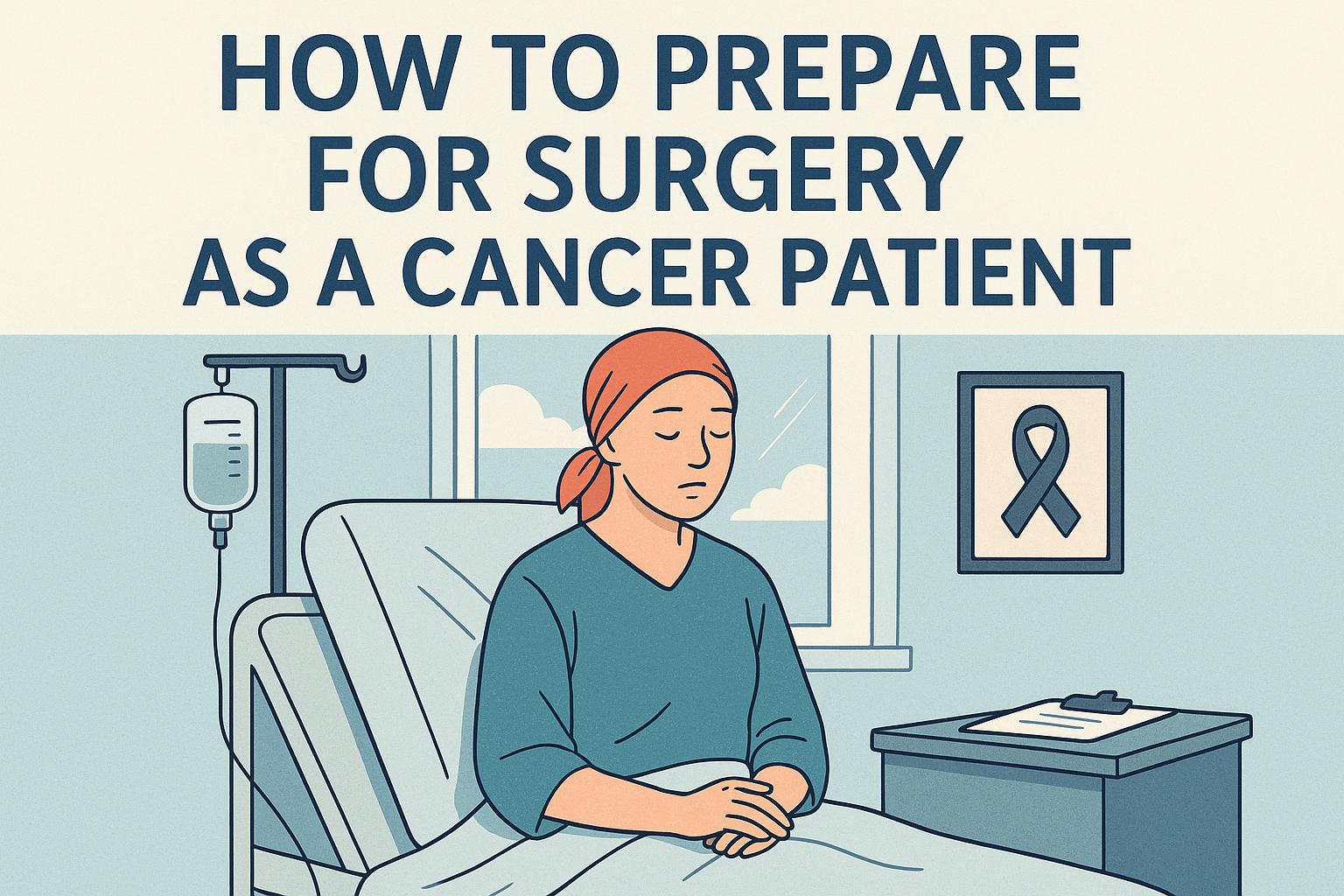Understanding the Surgical Process
As a cancer patient, understanding the surgical process is a critical aspect of preparing for surgery. Knowing what to expect and being informed about the details of your procedure can significantly ease your concerns and make the experience more manageable. Surgery is often a pivotal part of cancer treatment plans, and therefore, it is paramount to fully understand the different aspects surrounding this procedure. Your healthcare provider is an indispensable resource for this information, and it’s crucial to engage in detailed discussions about the surgery’s purpose and its role in your overall treatment strategy. Ensuring clarity on the entire process from start to finish is essential for effective preparation.
Consulting with the Healthcare Team
Your healthcare team plays a fundamental role in the operative journey, providing guidance, support, and expert care. Before surgery, you will engage with a diverse group of professionals, each contributing uniquely to your surgical plan.
Role of the Surgeon
The surgeon is primarily responsible for detailing the technical aspects of the surgery. They will explain the objectives, potential risks, and expected outcomes. Understanding the procedure itself, including how it fits into your broader treatment plan, allows you to align your expectations with likely scenarios.
Involvement of the Anesthesiologist
The anesthesiologist is responsible for your comfort and safety during surgery. They discuss the anesthesia options, any associated risks, and the type that will be used to suit your health needs. This conversation helps reduce anxiety about being under anesthesia and builds trust in the process.
Preoperative Evaluation
Prior to surgery, a comprehensive preoperative evaluation is conducted, which involves a series of assessments like blood tests, imaging exams, and physical exams. This evaluation is critical for determining your readiness for surgery. Disclosing any underlying health issues or current medications to your medical team is crucial, as it enables them to tailor the procedure and anesthesia to your specific needs.
Preparing Your Body for Surgery
Physical readiness significantly impacts surgical outcomes and recovery trajectories. Preparing your body involves careful attention to diet, exercise, and overall health maintenance.
Nutrition and Hydration
Maintaining a balanced diet rich in essential nutrients is key. Emphasizing fruits, vegetables, and proteins fortifies your immune system and promotes recovery. Your doctor might suggest specific dietary guidelines or supplements to enhance your nutritional status. Hydration is equally vital, as it supports bodily functions and can mitigate post-operative complications. Ensuring sufficient fluid intake is a simple yet effective step in your pre-surgical regimen.
Physical Readiness
Engagement in regular, light physical activity is beneficial. Such activities can bolster your strength, stamina, and mental well-being, all of which contribute to a smoother recovery process. It is, however, important to heed your doctor’s advice regarding the intensity and type of exercises to ensure you do not overexert yourself.
Managing Stress and Mental Preparation
Surgery often introduces significant stress and anxiety, which can negatively impact both the surgical experience and recovery. Mental preparation, therefore, is as important as physical preparation.
Relaxation Techniques
Integrating relaxation techniques into your routine helps mitigate stress. Regular practice of meditation, deep-breathing exercises, or yoga not only calms the mind but also improves focus, aiding you in approaching surgery with tranquility. These techniques are powerful tools in maintaining mental clarity and composure.
Seeking Support
Building a robust support network can significantly alleviate the emotional burden of surgery. Family and friends provide invaluable comfort, while counselors and support groups offer professional guidance and shared experiences. Engaging with others who have gone through similar surgical procedures can provide emotional relief and practical advice, drawing from firsthand knowledge.
Preparing Logistically for Surgery Day
Effective logistical preparation can streamline your surgical experience, minimizing stress on the day of the surgery.
Arranging Transportation and Care
Ensuring that transportation to and from the hospital is planned is essential. Arrangements for assistance post-surgery, whether through family members, friends, or a professional caregiver, are equally important, as the recovery phase can limit your capacity to carry out everyday tasks.
Packing for the Hospital
A well-packed hospital bag can remove a layer of concern and helps ensure a more comfortable hospital stay. Including essentials like identification, insurance information, and personal toiletries addresses basic needs. Comfortable clothing and adherence to prescribed medication routines enhance the post-operative experience.
In summary, preparing for surgery involves comprehensive understanding and meticulous planning. By maintaining an open dialogue with your healthcare team, attending to physical and mental health, and organizing logistics effectively, you can enhance your readiness for surgery. For additional resources and insights, resources like the American Cancer Society provide extensive guidance on navigating the surgical process.
This article was last updated on: November 20, 2025

